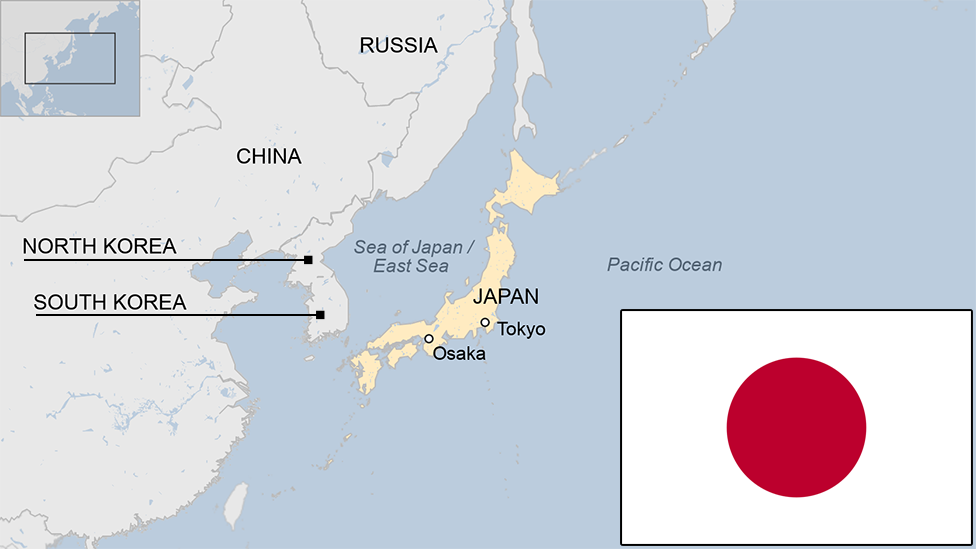Japan's Emperor Akihito: Ten things you may not know
- Published
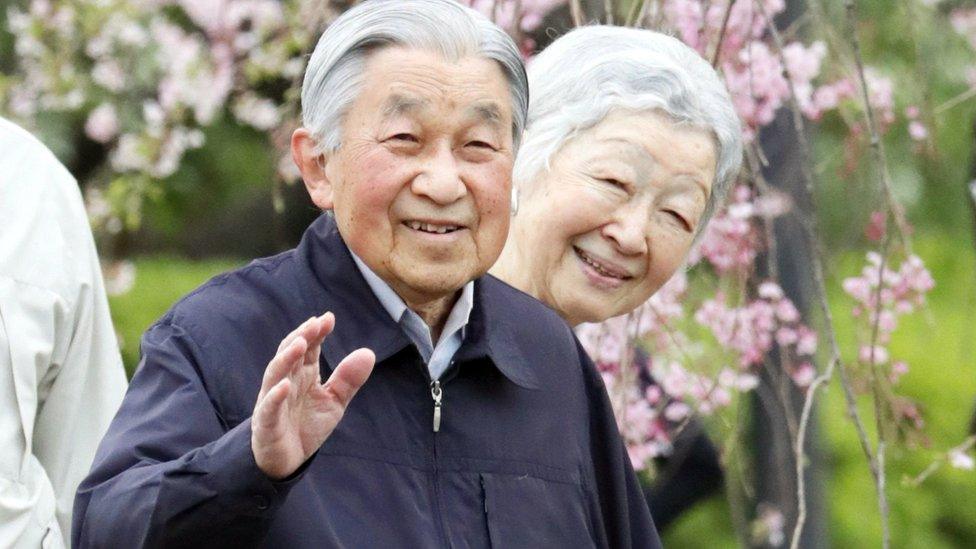
Japan's monarchy was once so removed from the public that in 1945, people were shocked to even hear Emperor Hirohito's voice when he announced the country's surrender in World War Two.
His son, Emperor Akihito, has overseen the transformation of the imperial household into a friendlier, more engaged symbol of the "unity of the people", as the role is defined in the constitution.
But age and ill-health have meant the emperor feels unable to continue in his role, and the government is allowing him to abdicate.
So here are 10 things you may not have known about Emperor Akihito's life and reign.

1. He has a really long family history
Born 23 December 1933, he is the 125th emperor of a line which is traced back more than 2,600 years, according to official genealogies. That would make it the world's oldest continuing hereditary monarchy.
In keeping with ultra-formal royal tradition, he was raised apart from his parents in an imperial nursery from the age of two.
2. But his marriage broke with tradition
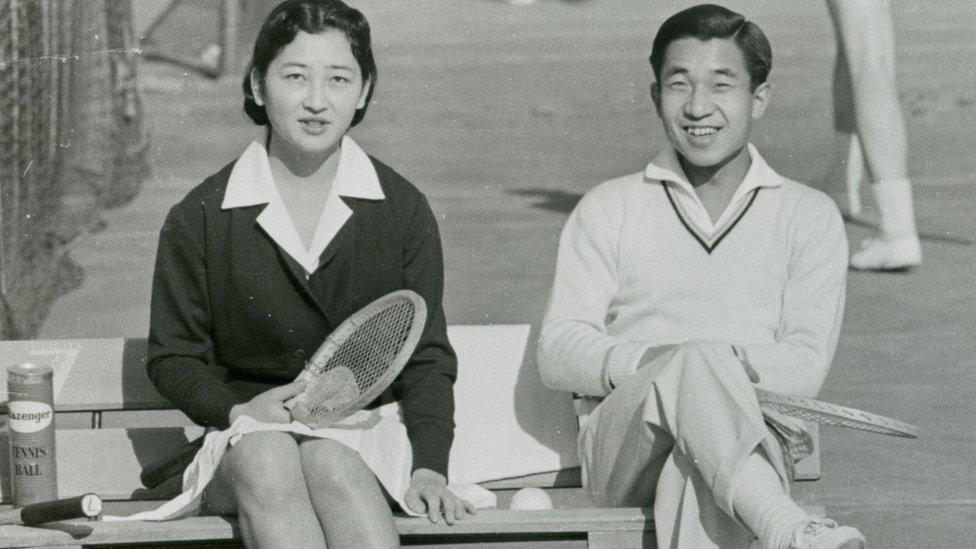
The then Crown Prince Akihito married a commoner in 1959, ending a 1,500-year-old tradition. Their love story was dubbed the "tennis court romance" as they met over the nets. Together he and Empress Michiko have three children and four grandchildren.
3. He sits on the Chrysanthemum Throne
High-ranking Japanese families traditionally have a family emblem - in the case of the emperor's ancestors it was the chrysanthemum.
Akihito took over the Chrysanthemum Throne in 1989 after his father, Hirohito, died. The formal enthronement ceremonies were not completed until nearly two years later, and involved rituals at Ise Shrine - dedicated to the sun goddess Amaterasu, from whom emperors were traditionally said to be descended.
4. He is not a god
Hirohito publicly renounced his divinity at the end of World War Two, as part of Japan's surrender.
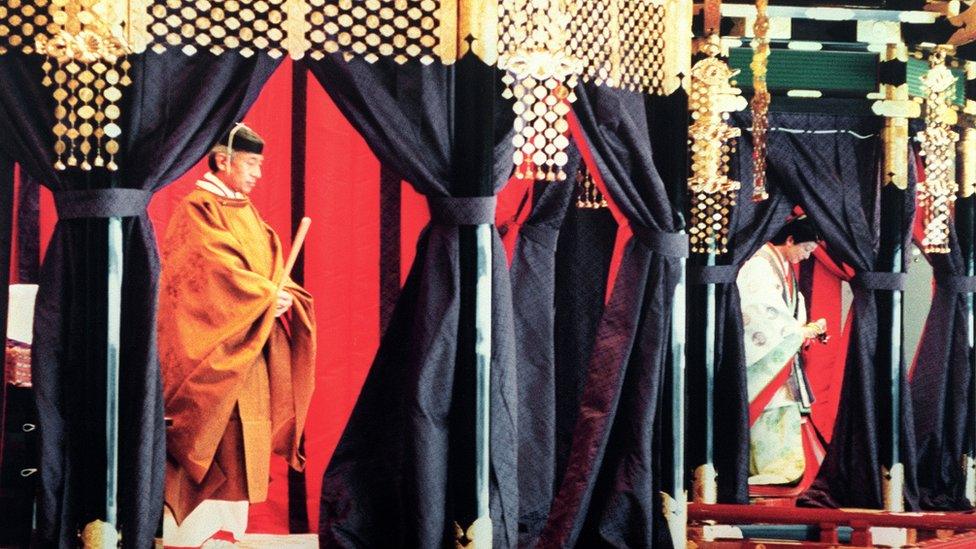
Divine or not, the emperor is still the chief priest of Shinto, Japan's indigenous religion
The imperial household maintains he the "symbol of the state", as described in Japan's constitution, which was written by the Allies.
But there are still a small number of Japanese people who insist he is a god, or at least should be treated as such.
5. He played tennis with Bush
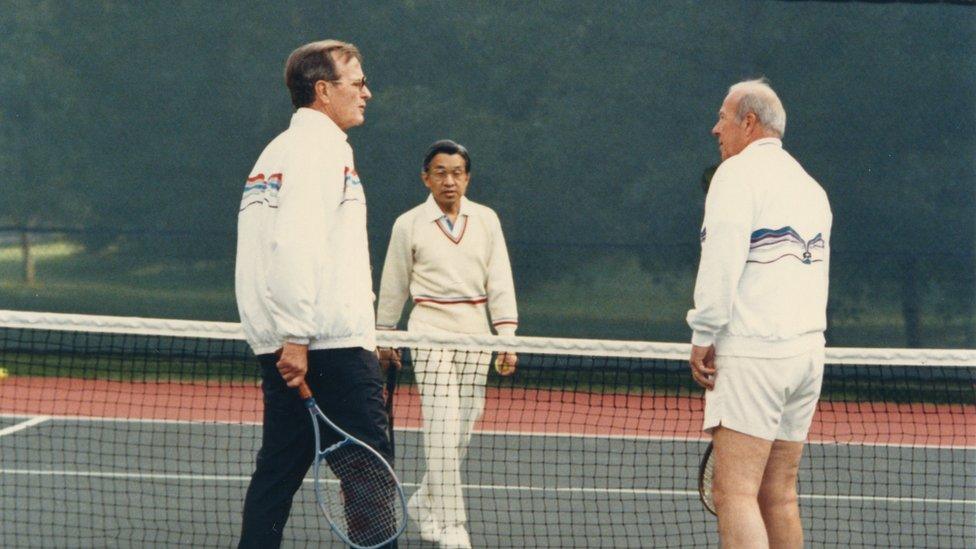
The emperor has travelled to more places and met with far more world leaders than any of his predecessors. In 1998 he met Queen Elizabeth, despite protests by former British prisoners of war, external once held by Japan.
He also played tennis twice against US President George Bush Sr. He beat him both times, though shortly after their game in Tokyo in 1992 President Bush fell violently ill at a state dinner.
6. His health is failing
The emperor had surgery for prostate cancer in 2003 and a heart bypass operation in 2012.
Akihito came to the throne 27 years ago on the death of his father, Hirohito
When he formally announced his wish to abdicate, in 2016, he said he was "worried that it may become difficult for me to carry out my duties as the symbol of the State".
7. He was once photographed by a schoolgirl
Akihito has adopted a more informal, modern style, making efforts to draw the imperial family closer to the people by travelling around the country far more than his predecessors and interacting with the public face-to-face.
The imperial couple also did not appear to mind when a schoolgirl took a picture of them and posted it to her Twitter account when they visited her prefecture - an action that divided opinion amongst the general public. Older generations saw it as hugely disrespectful, but to many younger people it was just normal.
8. His post-tsunami role was hugely important
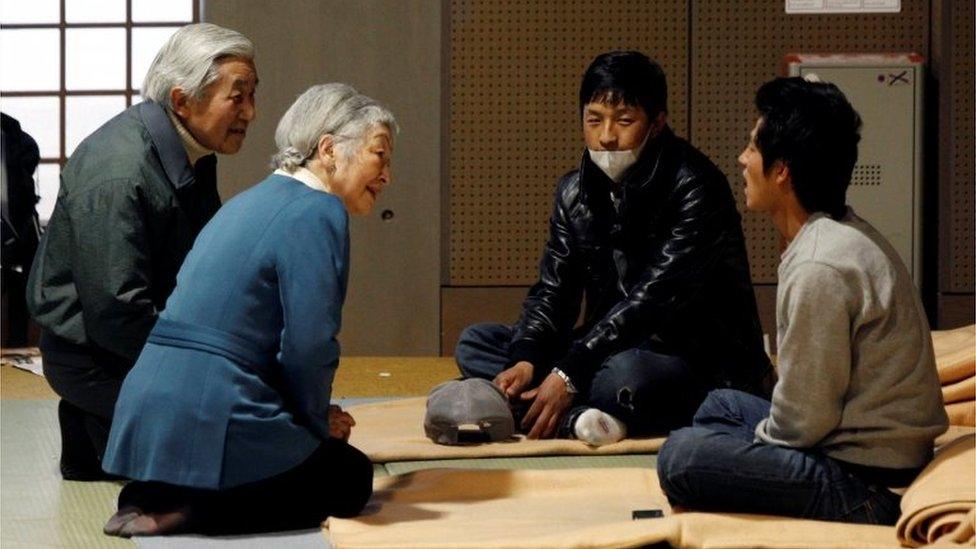
Crouching down with tsunami victims was seen as hugely symbolic of the changing role of the imperial family
His first ever televised address was after the 2011 earthquake and disaster, which left about 20,000 people dead or missing and displaced tens of thousands.
As with the latest speech, he spoke in polite but modern Japanese, rather than the courtly language unfamiliar to most of the public.
"I hope from the bottom of my heart that the people will, hand-in-hand, treat each other with compassion and overcome these difficult times," he said.
With the understatement his office is known for, he said of the unfolding nuclear crisis at Fukushima: "I hope things will take a turn for the better."
He and his wife visited the disaster zone a month after the quake and were seen crouching down with evacuees, a move seen as hugely symbolic of their sympathy for the public.
9. He has moved Japan on
While World War Two was fought and lost in the name of his father, Akihito has moved Japan through an era of peace and non-confrontation.
He said last year: "Looking back at the past, together with deep remorse over the war, I pray that this tragedy of war will not be repeated and together with the people express my deep condolences for those who fell in battle and in the ravages of war."
10. He has a fish named after him
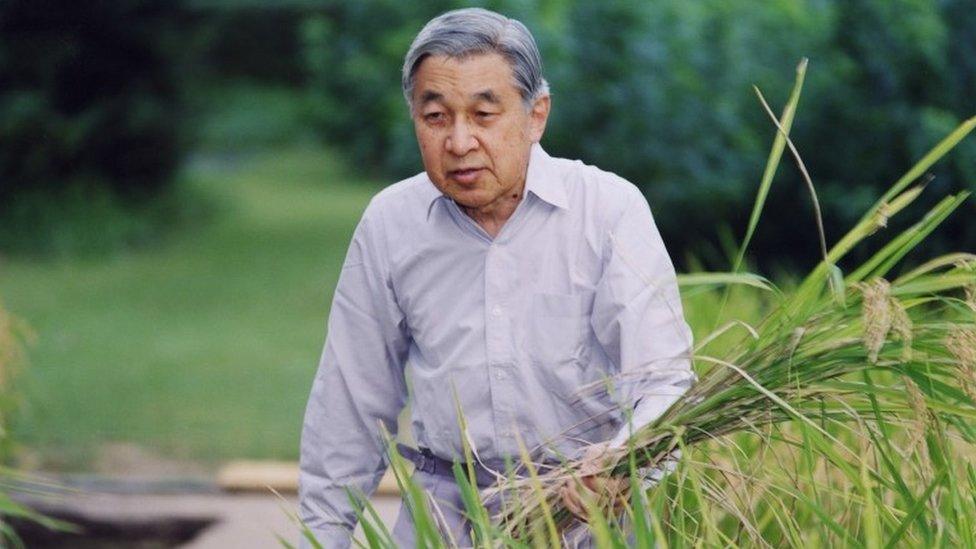
The emperor has been photographed harvesting rice in the grounds of the Imperial Palace
The emperor's particular passion is marine biology and he is an expert on the goby fish, one of which is even named after him - the Exyrias Akihito. He has written several times for the Japanese Journal of Ichthyology, among others.
He reportedly keeps part of the palace grounds in Tokyo wild and keeps note of the creatures he spots there.
- Published8 August 2016
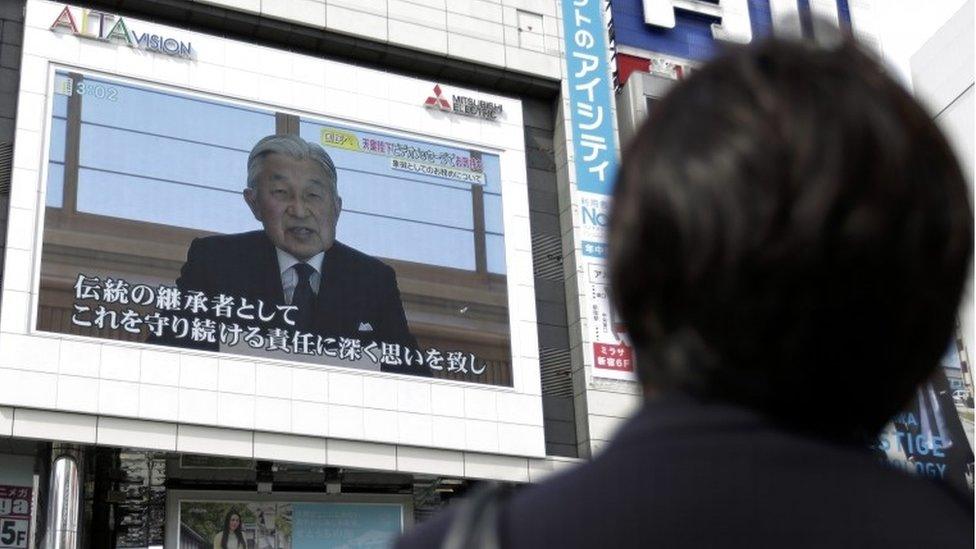
- Published8 August 2016
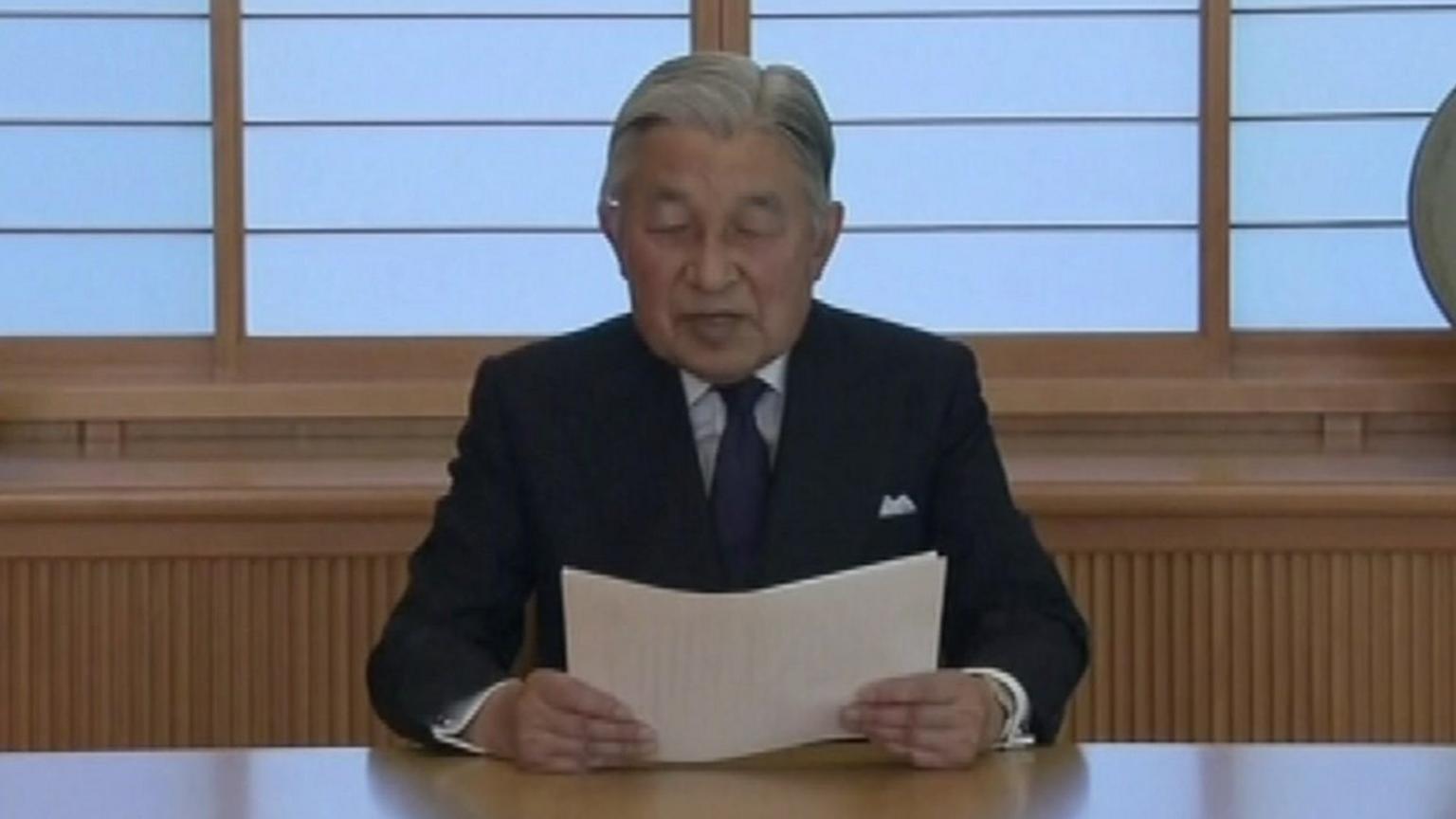
- Published8 August 2016
- Published15 August 2015
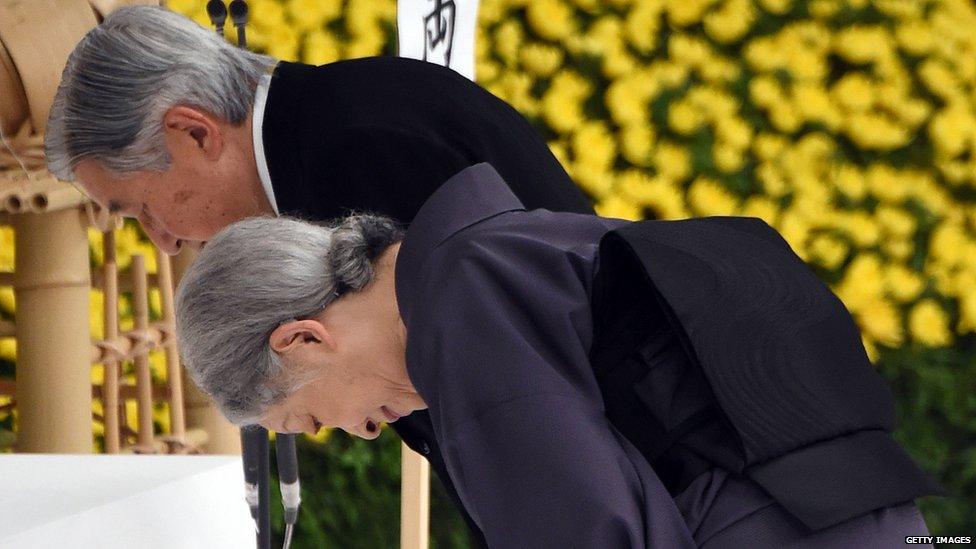
- Published30 March 2011
- Published30 October 2014
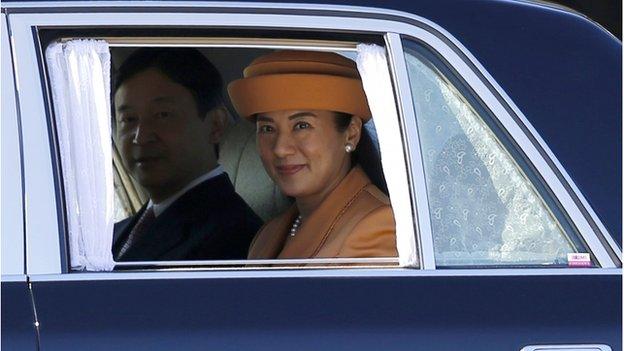
- Published29 October 2024
